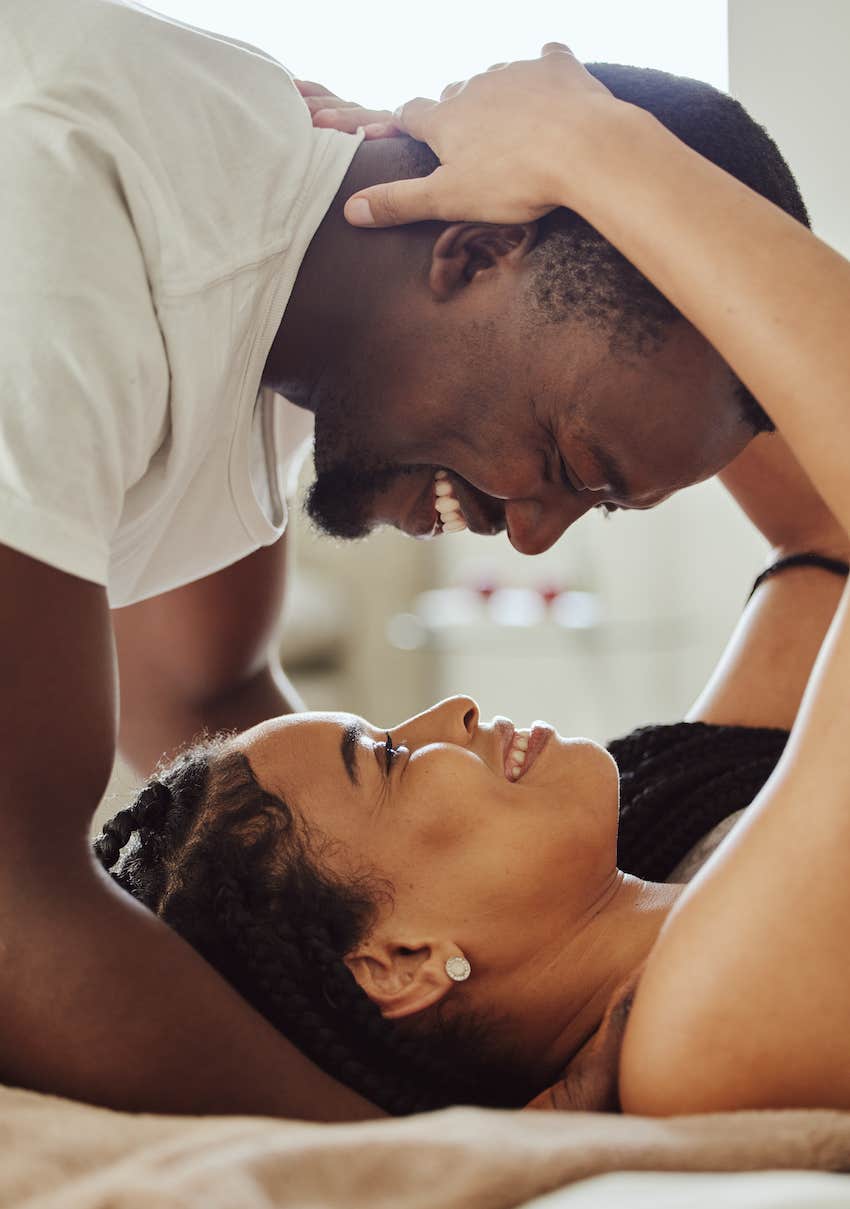The Psychological Bias That Threatens Even Happy Couples — And How To Counteract It
Once you know how it works, you can avoid letting it harm your love.
 Getty Images | Unsplash
Getty Images | Unsplash Ever find yourself scratching your head wondering, "What just happened here?" after a conversation with your spouse or partner? You're not alone! Things go awry, accusations start flying, and it feels like they are out to get you.
In these moments, it can feel like your wife or husband is nicer to strangers than they are to you. This is actually part of the same bias, and it doesn't mean they actually like those strangers more.
Researchers discovered that the closer a couple is, the more likely they will jump to conclusions and misinterpret what the other one is saying. This is called a "Closeness-Communications Bias."
The theory is that with a partner or close friend, the listener relies on past experiences and accumulated knowledge about the other person to assume what an ambiguous statement means. With a stranger, that history is not there, so the person has to listen and get curious to find out what it means.
How closeness-communications bias shows up in relationships
Jumping to conclusions
So much of the time in our relationships, we jump to conclusions that create tension, conflict, and distance based on misinterpretations. We take things personally when they aren't meant to be. We muck up opportunities to be soothing, and supportive, or to join in with an invitation to spice things up when we don't have to!
Social psychologists have conducted multiple studies that show it's easier to talk with a stranger rather than your partner or very best friend. Researchers invited married couples to interpret ambiguous statements made by their spouse and they did the same thing with pairs of friends. They repeated this with pairs who had not met before.
 Mladen Mitrinovic via Shutterstock
Mladen Mitrinovic via Shutterstock
You assume the worst of your partner
Of course, we all make assumptions all of the time — whether we're dealing with a stranger or spouse. Biases based on skin color, gender, apparent socioeconomic class, ethnicity, sexuality, and more can lead us astray and cause us to assume we understand what another person is saying even if we're way off base.
What these studies have shown, however, is that biases aren't only with strangers. In an intimate relationship, there is a bias that can wreak havoc with communication and connection. Your love relationship or marriage may be struggling because of the assumptions you make every day about what your partner says.
A simple statement like, "I have a headache" or "I'm bored" can be no big deal or a huge deal, depending on how it's interpreted by the listener. If you have a bias against your partner, it can go turn a neutral statement into a catalyst for a major argument.
How frequently do you give in to a closeness bias with your partner?
Four ways to counteract closeness-communication bias
1. Slow it down
With the prevalence of multitasking and preponderance of distractions in just about every moment of our lives, it's no surprise that we frequently misinterpret what others are saying. Often, we aren't listening! Whenever you feel stirred up, annoyed, worried, or somehow triggered by what (you think) your partner is saying, stop and remind yourself to s-l-o-w down.
2. Back it up
No matter how certain you are that your partner just criticized, dismissed, or otherwise said something "wrong," don't push forward. Do whatever it takes to not react. Instead, back it up and remind yourself of the facts you have right here and right now. Don't rely on what was true about your partner (or about you) a year ago or even a week ago, review the facts that you know about this situation.
3. Get clarification
Usually, when you back it up and review the facts you have about this current situation to try to understand your partner's words, you realize there's a lot you don't know. Slowing down your mind (and the assumptions you may be making) gives you the space to say, "Hey, I don't know if that's true! I need to find out more before I decide what I will say or do."
 PeopleImages.com - Yuri A via Shutterstock
PeopleImages.com - Yuri A via Shutterstock
It's really this simple to clarify your understanding of something your partner says. If it helps, pretend for the moment that your partner is a stranger whom you're just getting to know. With kindness and a genuine desire to know more, ask your partner to help you understand what they just said. Follow-up questions like these promote openness in a conversation.
- "How can I support you right now?"
- "Will you tell me more about ____?"
- "Please help me understand what you just said. I'd like to help."
4. Trust the answer
A common mistake that people make in relationships is they don't listen to or respect the response they get to a follow-up question. Again, it's those biases because of the past and beliefs that can cause trouble. Invite yourself to trust what your partner says is true. Set aside your thoughts that, "He really means _____" or "She's hiding what she thinks." Concentrate on what your partner is saying to you.
Susie and Otto Collins are Certified Transformative Coaches who help awaken love and possibilities in your life.

